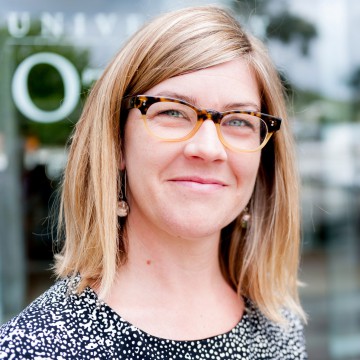 Take a hike.
Take a hike.
Amber Pearson, assistant professor in the department of geography at Michigan State University, examines why exposure to green and blue spaces can be beneficial for your health.
I am a health geographer with a focus on social justice and understanding the unexpected tenacity, adaptability and resilience of the underprivileged. I have diverse regional interests from poor to wealthy countries. My work features strong geospatial and epidemiologic methods and critical development thinking.
My water research is at the intersection of spatial and social dimensions of health with a focus on water availability. My overall research goal is to understand the interactions between human-induced ecological change, political and social dimensions of access to water, and human agency/coping strategies to improve health and wellbeing while paying careful attention to health inequalities and environmental justice.
Blue and Green Spaces Reduce Stress
We live in increasingly urbanized areas which limit our exposure to natural spaces and this could lead to more depression and mental health issues – one of the top causes of disease worldwide – so identifying factors within cities which relate to positive mental health is important.
We used the capital city of New Zealand – Wellington to examine the relationship between mental health and the visibility of natural spaces, including blue space or water bodies and green space or parks and vegetated areas. We developed a geospatial technique to quantify visual exposure to blue and green spaces for residential locations across the entire city. Then, using the New Zealand Health Survey Data, we linked mental health data for the respondents to blue space visibility, based on where they lived.
We found that higher levels of blue space visibility were associated with decreased psychological distress, regardless of other factors such as age, sex and income. However, we did not find the association for green space.
We do not know whether our findings would hold true in other settings. The blue space in Wellington is almost completely oceanic. When one sees the ocean, other senses are experienced including sound and smell. So similar studies evaluating the relationship for fresh water would be beneficial. If other studies confirm our findings, there may be urban planning implications. It would be important that residential views of blue space not be limited to those that can afford them, in order to limit inequalities in mental health between the rich and the poor.

